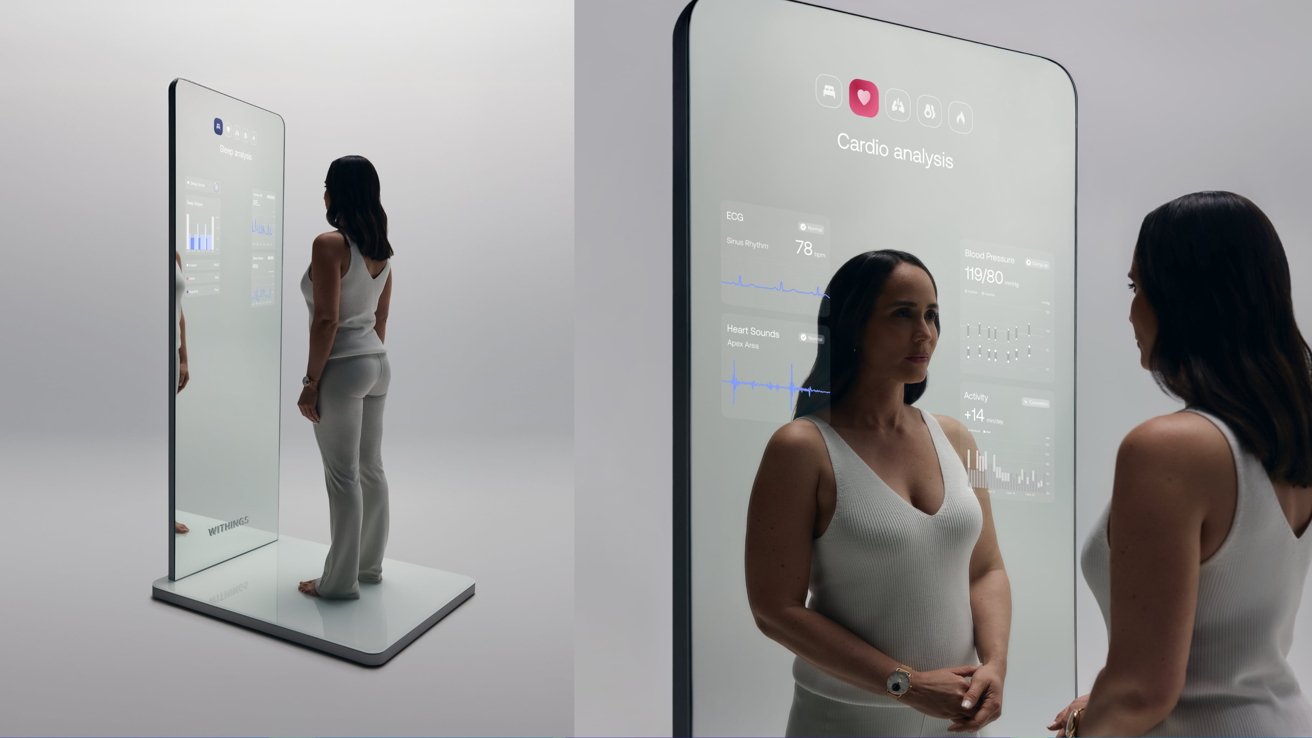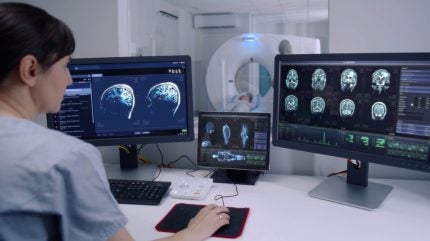Welcome, MedTech Professionals.
W2 Edition of The MedTech AI Monitor
Hey there,
Yesterday, the FDA released Draft Guidance for AI-Enabled Device Software Functions. There's a lot going on in this 67 pg. document, and I need to spend some time reviewing with peers to give a full breakdown.
There's an FDA webinar on Feb. 18 to answer open questions: ie- Postmarket performance monitoring plans are optional...? For AI models that could be changing every second? If you have any questions- let me know and I can submit them with mine, prior to the webinar.
CES is in full swing and there are some pretty neat health devices being showcased. Let's get into it!
Have a great rest of your week!
-Greg
tl;dr
-2x FDA AI webinars in Q1
-Kaiser Permanente tackles burnout with AI tools
-Trump’s team signals pro-industry AI stance
1. A Full-size Body-scanning Health Mirror (CES)
The Withings Omnia, unveiled as a concept at CES 2025, is a futuristic smart mirror offering 360-degree body scans and insights into health metrics like weight, heart, and lung health, integrated with data from wearables. Positioned as a transformative digital health experience, it promises features like telemedicine integration, touch interactivity, and a voice assistant. While the system remains in development, pending clinical reviews and enhanced AI, some features are expected to roll out via the Withings app in late 2025. [Link]
2. Kaiser Permanente's New Head of AI on 'Two Fundamental Shifts'
Dr. Daniel Yang, Kaiser Permanente's VP of AI and Emerging Technologies, oversees the integration of AI to address challenges like clinician burnout and rising healthcare costs. Hired in 2023, he ensures AI tools prioritize patient safety and quality care. Under his leadership, Kaiser Permanente deployed a generative AI documentation tool, reducing administrative tasks and improving patient-doctor interactions. Yang highlights the need for robust AI governance, ethical safeguards, and continuous monitoring to prevent bias and enhance equitable healthcare delivery. [Link]
3. AI Copyright Issues Delayed, President-elect Trump Builds AI Team
AI developments in Washington, DC, were minimal in late December ahead of a new administration and Congress. Key updates include delays in the US Copyright Office’s AI report, President Biden signing the FY 2025 National Defense Authorization Act (NDAA), and President-elect Trump forming his AI team. The Copyright Office postponed parts 2 and 3 of its AI report to 2025, addressing issues like generative AI outputs, but Trump’s policy shifts may affect its release. Trump’s AI team, led by David Sacks, includes ex-officials Michael Kratsios and Lynne Parker, signaling a pro-industry stance. [Link]
🗞️ In Other News
🎟️ Upcoming Event Streams
1. Webinar – Final Guidance: Marketing Submission Recommendations for a PCCP for Artificial Intelligence-Enabled Device Software Functions [Link]
- Date: January 14, 2025
- Time: 2:00 p.m. - 3:15 p.m. ET
2. Webinar - Draft Guidance: Artificial Intelligence-Enabled Device Software Functions: Lifecycle Management and Marketing Submission Recommendations [Link]
- Date: February 18, 2025
- Time: 2:00 p.m. - 3:30 p.m. ET
📄 Doc Control
AI-Enabled Device Software Functions, FDA draft guidance [Paper Link]
Key points on how this differs from traditional submission guidance:
- Lifecycle Focus: TPLC management for AI devices, covering design, 'validation', and postmarket, unlike static frameworks for traditional devices.
- AI-Specific Guidance: Addresses dynamic updates, data management, and bias, unlike generic FDA submission guidances.
- Terminology Clarification: Aligns "validation" and "development" definitions with FDA standards, bridging gaps between FDA and AI community terms.
- Dynamic Updates: Introduces PCCPs for managing AI model updates without resubmitting for full FDA approval, unlike traditional submission processes.
- Transparency and Bias: Prioritizes transparency and demographic bias mitigation throughout product lifecycle, emphasizing trust and equity in AI medical devices.
The views and opinions expressed in this email are for informational purposes only. They do not constitute legal advice. Readers are encouraged to consult with their own legal counsel regarding any specific legal questions or issues related to the topics discussed.



